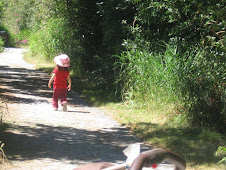Many second marriages crumble as a result of issues surrounding step-children. With young children who are living in the home, the problem is easier to understand. But what of problems created by adult step-children who are not living in the home?
Issues such as jealousies may arise if adult children feel their wishes or, in some cases demands, are now only considered in view of the new family structure and do not have the same significance as they did before their parent had married again.
Also adult children are very often upset with the idea that the new person in their biological parent's life will not only have a claim on their time but also may have some financial claims as well which could well leave them with substantially less of the pot.
And in some cases, the adult children may feel that the new person in their parent's life is usurping their biological parent's place. They may also feel that this person doesn't measure up in some way and be resentful of the new person in their mothers or father's life.
The following are some basic suggestions to bear in mind which can help in relationships with adult step-children:
Be a good listener to your step-children whether they are young or are adults;
Don't try to be a parent to them whatever their age but particularly when they're adults, try to be a friend only;
When trying to establish relationships, go slowly;
Attempt to have good communication;
Be interested in them and in their interests;
Don't try to be a grandparent to the offspring of your adult step-children;
Encourage your spouse to maintain a relationship with his/her children;
Avoid doing anything that makes step-children, young or adult, feel threatened by you.
But what if there had been very little relationship between the biological parent and his or her children before you came on the scene? But in spite of this there is still resentment of the new person in their parent's life; what can you do as the new person?
It is still advisable to encourage your spouse to be as interactive as possible with his/her children. However, do not try to influence the children or encourage anything that is out of their comfort zone; it is not up to you and will only be viewed on their part as interference.
I read once that if a child is seven years old when a step-parent enters their life, it will take seven years for them to accept and consider the new person to be a permanent part of their existence. So it is easy to understand how much more difficult it is when the step-children are adults. And this is particularly the case if there already exists a poor relationship between the biological parent and his/her adult children.
There are varying statistics for failures of second marriages but it is suggested that a second marriage is less likely to survive than a first. One report suggests that only 20% of second marriages succeed because of the many problems and pitfalls associated with second or subsequent marriages. Step-children are considered high on the list of difficulties that are encountered.
In order for a second marriage to survive, particularly when there are adult step-children, probably the best advise is to be low-key and friendly and allow all family situations to be dealt with by the biological parent. Although according to statistics, even following this advise will not always guarantee a successful second marriage.





















































































No comments:
Post a Comment